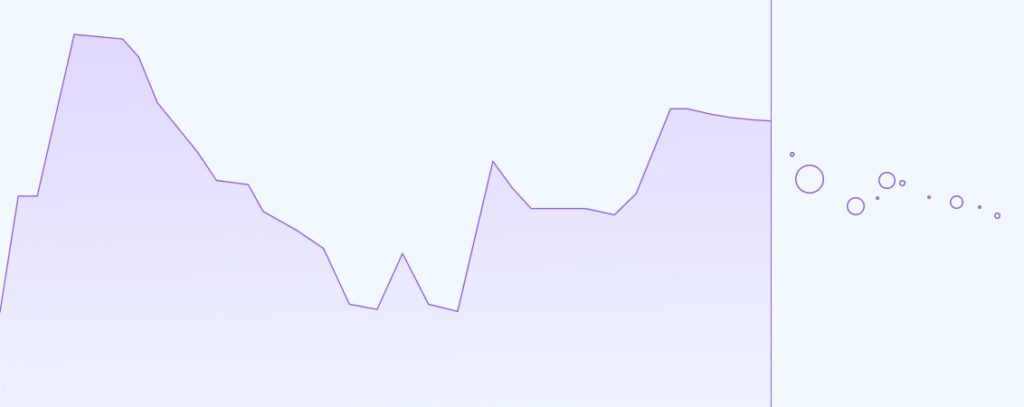
What type of entrepreneur are you – confident, controlling or opportunistic?
22 December 2022How many types of entrepreneurs are there?
When it comes to managing the cash flow of your company there are usually three types of business owners:
- Confident
- Controlling
- Opportunistic
What type of entrepreneur are you?
To identify what type of entrepreneur you are there are some common questions to answer.
- Are you forecasting the cash flow of your company at all?
- If you forecast your cash flow, how do you do it?
- How much into the future are you planning for?
- How often do you update your forecasts
- How much time do you spend on forecasting cash flow?
- What inputs and tools do you use for cash flow planning?
These are some of the questions that we at Tailwind ask entrepreneurs every week. We have conducted more than 100 interviews with entrepreneurs from 6 countries and now are happy to share some of our findings. Hopefully this will help you find out a bit more about yourself as a business owner.
Most of the companies we spoke to were small businesses. They had up to 30 employees and offered services such as software development, legal advice, auditing, marketing, training, consulting, civil engineering etc. These are also known as professional services industries. These types of businesses also represent between a quarter and a third of all companies in the European Union.
Three distinct characters
No two businesses are identical and there are many important differences among the group we surveyed. But we did identify three distinct types of entrepreneurs based on their cash flow forecasting practices: the Confident, the Controlling and the Opportunistic type.
Confident
The main distinction of the Confident type is that they have managed to accumulate a “savings buffer” for their company, typically equal to one to three months’ worth of running costs. This allows them to review and update their cash flow forecasts once a month as even unexpected delays in incoming payments do not affect their ability to pay their bills on time. Many companies representing this type also have very predictable and stable cash flows.
Controlling
The next is the Controlling type. Their cash reserves are much smaller than the Confident ones have and their cash flows are often less predictable. They invoice some clients on a monthly basis and others upon completion and acceptance of agreed deliverables. Even relatively short delays in invoicing and invoice payments can affect their ability to pay on time.
But preserving their reputation is very important for the Controlling type, therefore these entrepreneurs are very diligent in their cash flow forecasting and update their forecasts at least once a week but often every other day. The downside is that it requires a lot of time, often 2-4 hours a week.
Most of the companies we surveyed do not have an in-house accountant but instead rely on services of an external accounting firm. Typically external accountants are helping to prepare reports on the past transactions but as far as planning the future is concerned, company managers (often also owners or co-owners) are on their own. Usually they use Microsoft Excel or Google Sheets spreadsheets which means spending a lot of time on manual updates as soon as you pay someone, get paid or make new assumptions.
Opportunistic
Excessive time consumption is the main source of frustration of the Controlling type and therefore many of them eventually join the third group or Opportunistic type. These entrepreneurs do not forecast their cash flows at all – not because they don’t want to, but because it takes so much time. Or they haven’t found a simple tool that would help them in planning.
Unfortunately the Opportunistic entrepreneurs often lose their perceived time savings when they face cash shortages which almost always come as a surprise to them. Solving the problem at the very last moment usually takes much more time and often leads to reputational damage.
From the companies we interviewed so far, ~20% were Confident, ~50% were Controlling and the rest were Opportunistic types.
Are they happy with the way things are?
Unsurprisingly, most in the Confident type are satisfied with their current practices and did not see reasons to change anything. They surely appreciate the flexibility their cash reserves provided and did not want to spend time on more detailed planning.
At the same time, many entrepreneurs representing the Confident type note that their cash flow position was not always as stable and they had experienced more turbulence in the past. Also, many of them consider making significant investments to expand their business and their cash flow position is likely to become more vulnerable in the short to medium term.
Most entrepreneurs representing the Controlling type would prefer to stabilise their cash flows and build more reserves so that they could do forecasting less often. And in any case they are looking for more efficient and simple ways to do forecasting and avoid constant retyping of information from various sources in their spreadsheets.
Entrepreneurs representing the Opportunistic type would rather avoid the “last minute surprises” they often encounter – but not if it means spending a lot of time updating the forecasts all the time.
So one common theme which we heard from all three groups is “no one wants to spend time forecasting their cash flows”. And this is why we tried to keep things simple and easy when building Tailwind: from automatic synchronisation with your bank account to transaction matching, drag and drop rescheduling and much more.
Why are we so curious about this topic? As we are running a cash flow forecasting app for small business owners across Europe, learning as much as possible about their current practices felt like an obvious step to take.
If you would like to share your insights on how you manage cash flow of your company and what improvements would you like to see, get in touch!
